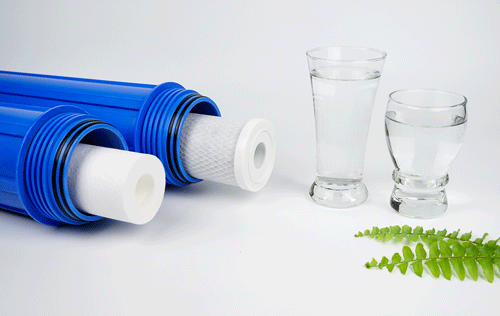Product added to cart


When it comes to maintaining clean and safe water for our homes or businesses, filtration is key. Sediment filters play a vital role in removing impurities and particles from our water supply. In this article, we will explore the main types of sediment filters used in water filtration systems, including wound filters, spun filters, pleated filters, and string filters. Understanding these different filter types will help you make an informed decision when choosing the right filter for your specific needs.
1. Wound Filters
Wound filters, also known as depth filters, are made from a tightly wound string around a central core. These filters are highly effective at capturing sediments, such as sand, silt, and rust. As water passes through the filter, the tightly wound string traps and removes the particles, ensuring cleaner water. Wound filters are available in various micron ratings, allowing you to choose the level of filtration required based on the water quality in your area.
2. Spun Filters
Spun filters, also called melt-blown filters, are manufactured using polypropylene fibers. These filters are known for their excellent dirt-holding capacity and high flow rates. As water flows through the filter, the spun fibers entrap sediments and prevent them from passing through. Spun filters are available in different micron sizes and are ideal for applications where fine sediment removal is necessary.
3. Pleated Filters
Pleated filters consist of a pleated media, typically made from polyester or cellulose. These filters offer a large surface area for filtration, allowing for enhanced particle retention. The pleated design ensures minimal pressure drop and longer filter life. Pleated filters are effective at removing sediments like sand, silt, clay, and organic matter. They are available in various micron ratings to meet different filtration requirements.
4. String Filters
String filters, also known as bag filters, utilize a woven or knitted mesh material to capture sediments. They are commonly used in applications where larger particles need to be removed from the water. String filters are easy to install and clean, making them suitable for both residential and commercial settings. These filters come in different sizes and mesh densities, allowing for effective sediment removal.
In conclusion, sediment filters are an essential component of water filtration systems, ensuring cleaner and healthier water. Whether you opt for wound filters, spun filters, pleated filters, or string filters, each type has its advantages and is suitable for specific filtration needs. Consider the micron rating, flow rate, and the type of sediments you need to remove when choosing the right sediment filter for your water purification system.
Remember, regular maintenance and replacement of the sediment filter are crucial to maintain optimal performance. Consult with a water filtration professional to determine the best filter type and maintenance schedule for your specific water quality requirements.
By investing in a quality sediment filter, you can enjoy clean and fresh water, free from unwanted particles and sediments, in your home or business.